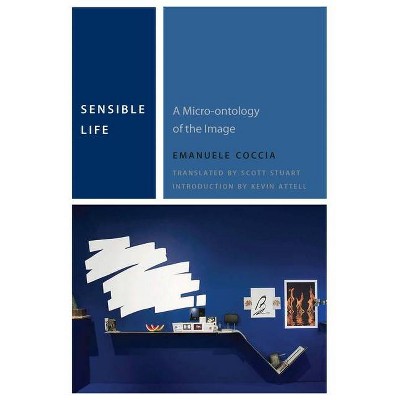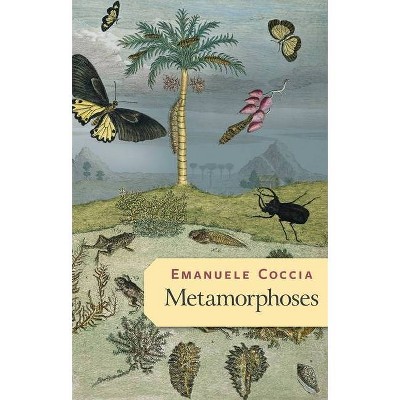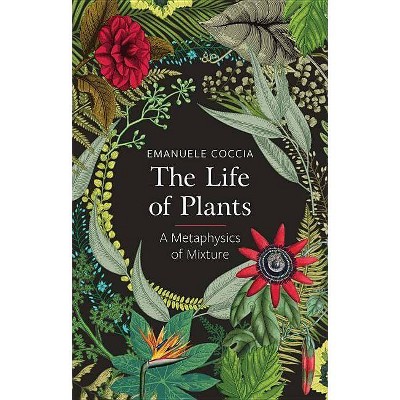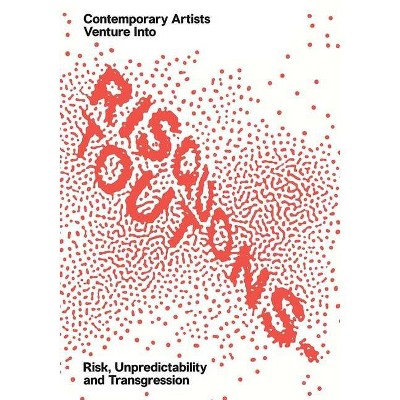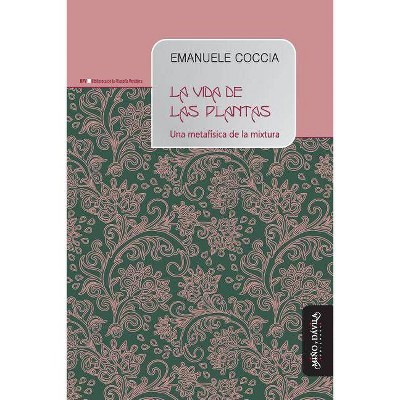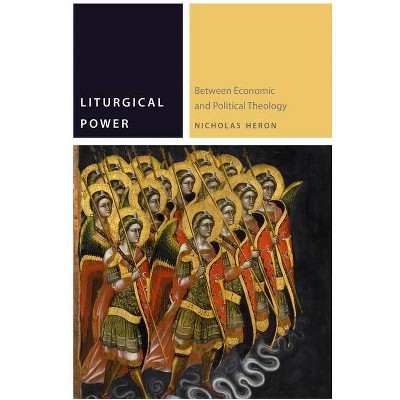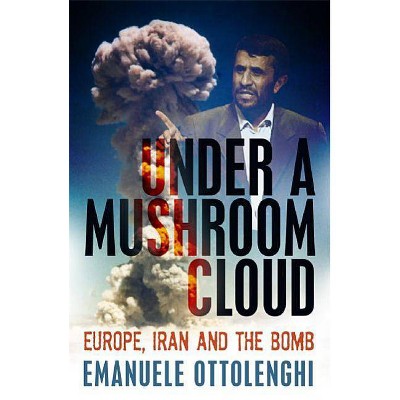Goods - (Commonalities) by Emanuele Coccia (Paperback)
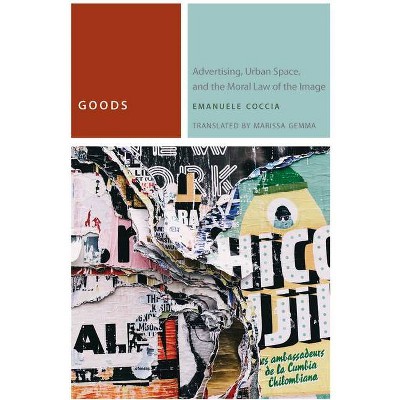
Similar Products
Products of same category from the store
AllProduct info
<p/><br></br><p><b> About the Book </b></p></br></br>Claims advertising is nothing but a metaphysical hypothesis about the moral nature of things: objects aren't purely physical or economical entities. Any object, regardless of its nature, can become a complex of possible happiness--not just an object of value, but a moral source of perfection for any one of us.<p/><br></br><p><b> Book Synopsis </b></p></br></br><p>Objects are all around us--and images of objects, advertisements for objects. Things are no longer merely purely physical or economic entities: within the visual economy of advertising, they are inescapably moral. Any object, regardless of its nature, can for at least a moment aspire to be "good," can become not just an object of value but a complex of possible happiness, a moral source of perfection for any one of us. <p/>This provocative book, already available in Italian, French, and German, and written by a major new figure in European thought, argues that our relation to things is what makes us human. For Coccia, the object world must be conceived as the site of what the philosophical tradition has considered the good, and the flat surfaces of billboards and posters become the first form of any object-oriented ontology. Positing a radical political praxis against a facile materialist critique of things, Coccia shows how objects become the medium through which a city enunciates its ethos, making an ethical life available to those who live among them. <p/>When we acknowledge that our notion of "the good" resides within a world of things, we must grant that in advertising, humans have revealed themselves as organisms that are ethically inseparable from the very things they produce, exchange, and desire. In the advertising imagination, to be human is to be a moral cyborg whose existence attains ethical perfection only via the universe of things. The alienation commodities cause and express is moral rather than economic or social; we need our own products not just to survive biologically or to improve the physical conditions of our existence, but to live morally. <p/>Ultimately, <i>Goods</i> offers a radically political rethinking of the power of images. The problem of contemporary politics is not the anesthetization of words but the excess power we invest in them. Through images, we already live another form of political life, which has very little to do with the one invented and formalized by the legal tradition. All we need to do is to recognize it. Advertising and fashion are just the primitive, sometimes grotesque, but ultimately irrepressible prefiguration of the new politics to come.</p><p/><br></br><p><b> From the Back Cover </b></p></br></br><p>"This short, unsettling book offers new perspectives on the moral place of things in the cosmology of industrial modernity. In making his radical argument, Coccia questions many of our habits of thought, by showing that the love of things--crystallized in fashion, advertising and consumption--reflects a search for a form of political normativity which has for too long been seen as illicit, illusory and immoral."--Arjun Appadurai, New York University <p/>Objects are all around us--and images of objects, advertisements for objects. Things are no longer merely purely physical or economic entities: within the visual economy of advertising, they are inescapably moral. Any object can--for at least a moment--aspire to be "good," can become a complex of possible happiness, a moral source of perfection for any one of us. <p/>This provocative book argues that our relation to things is what makes us human. Positing a radical political praxis against a facile materialist critique of things, Coccia shows how objects become the medium through which a city enunciates its ethos, making an ethical life available to those who live among them. <p/>In the advertising imagination, to be human is to be a moral cyborg whose existence attains ethical perfection only via the universe of things. The alienation commodities cause and express is moral rather than economic or social; we need our own products not just to survive biologically or to improve the physical conditions of our existence, but to live morally. <p/>Ultimately, <i>Goods</i> offers a radically political rethinking of the power of images. The problem of contemporary politics is not the anesthetization of words but the excess power we invest in them. Through images, we already live another form of political life, which has very little to do with the one invented and formalized by the legal tradition. All we need to do is to recognize it. Advertising and fashion are just the primitive, sometimes grotesque, but ultimately irrepressible prefiguration of the new politics to come. <p/><b>Emanuele Coccia</b> is Associate Professor of Philosophy at the EHESS in Paris. He is the author of <i>Sensible Life: A Micro-Ontology of the Image</i>. With Giorgio Agamben, he is editor of a comprehensive anthology of texts on angels across the Abrahamic traditions.</p><p/><br></br><p><b> Review Quotes </b></p></br></br><br>"This short, unsettling book offers new perspectives on the moral place of things in the cosmology of industrial modernity. In making his radical argument, Coccia questions many of our habits of thought, by showing that the love of things--crystallized in fashion, advertising and consumption--reflects a search for a form of political normativity which has for too long been seen as illicit, illusory and immoral."<b>---Arjun Appadurai, New York University, <i></i></b><br><p/><br></br><p><b> About the Author </b></p></br></br><b>Emanuele Coccia</b> is Associate Professor of Philosophy at the EHESS in Paris. He is the author of <i>Sensible Life: A Micro-Ontology of the Image</i>. With Giorgio Agamben, he is editor of a comprehensive anthology of texts on angels across the Abrahamic traditions.
Price History
Cheapest price in the interval: 28 on October 27, 2021
Most expensive price in the interval: 28 on December 20, 2021
Price Archive shows prices from various stores, lets you see history and find the cheapest. There is no actual sale on the website. For all support, inquiry and suggestion messagescommunication@pricearchive.us
